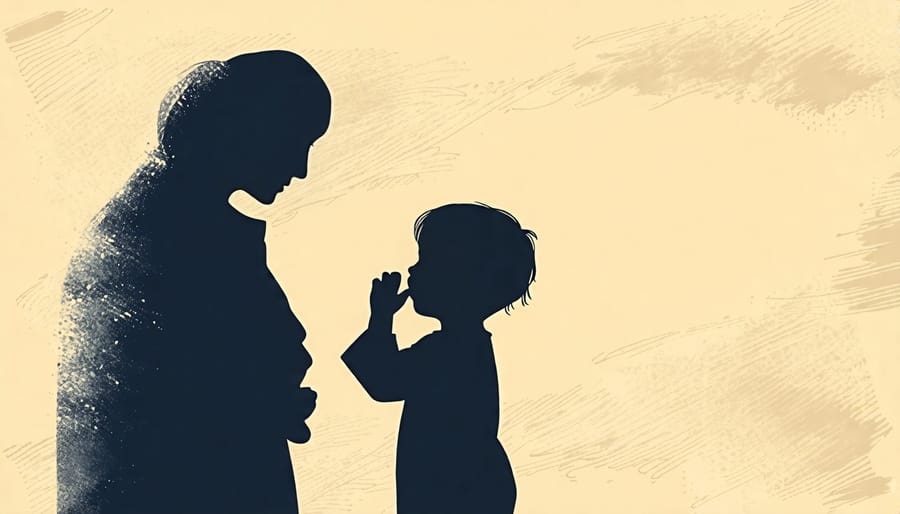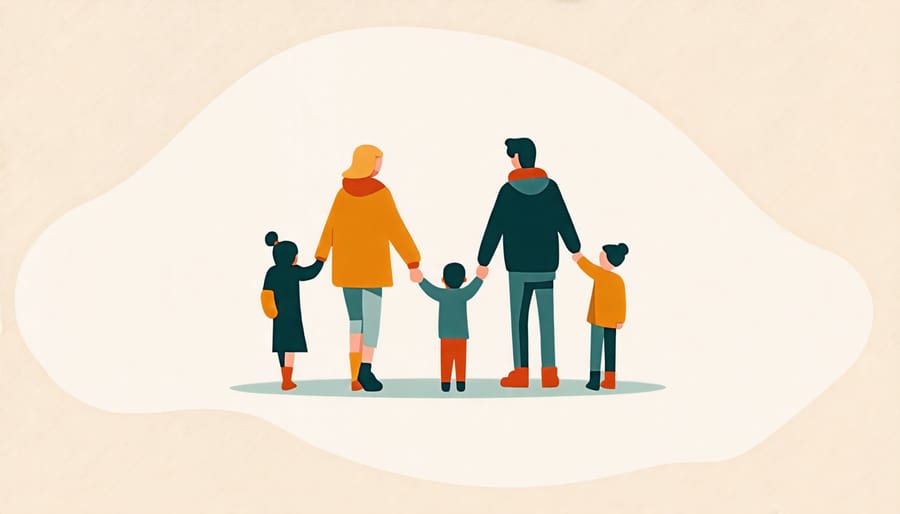Here is a 200-word introduction for an article about the psychological effects of a suicidal parent:
The suicide of a parent shatters a child’s world. In an instant, the person they depended on for love, support, and stability is gone, leaving confusion, grief, and trauma in their wake. Children who lose a parent to suicide face a long and difficult road. They are at higher risk for depression, anxiety, PTSD, and suicidal thoughts compared to children who lose a parent from other causes. Many blame themselves, believing they could have somehow prevented the unthinkable. Others feel abandoned, rejected, and angry at their parent for leaving them.
These profound psychological wounds can persist well into adulthood if not properly addressed. But with the right support, children can learn to process their grief, make sense of their loss, and move forward with resilience. This article explores the complex emotions and challenges these bereaved children face. It provides insights into their unique experiences and offers guidance for parents, caregivers, and professionals seeking to help them heal. While the road is not easy, there is hope. With patience, understanding, and unconditional love, children can emerge from this tragedy stronger than before – and know they are never alone in their grief.
Understanding the Child’s Perspective

Age-Specific Reactions
Children’s reactions to a parent’s suicide can vary significantly based on their age and developmental stage. Younger children, under the age of 6, may struggle to comprehend the permanence of death and exhibit regressive behaviors, such as bedwetting or thumb-sucking. They may also experience separation anxiety and clinginess.
School-aged children, between 6 and 12, may grasp the finality of death but struggle with feelings of guilt, believing they could have prevented the suicide. They may display anger, irritability, and a decline in school performance. Some children might try to hide their emotions to avoid burdening others.
Adolescents, aged 13 to 18, may oscillate between adult-like grief reactions and child-like behaviors. They might experience intense anger, shame, and a sense of abandonment. Teens may also engage in risky behaviors, such as substance abuse or self-harm, as a coping mechanism.
It’s crucial to remember that every child is unique, and their grief journey will be individual. Some may openly express their emotions, while others may withdraw. Providing age-appropriate support, encouraging open communication, and seeking professional help when needed can help children navigate this difficult time and foster resilience.
Potential Long-Term Effects
Children who have experienced the trauma of a suicidal parent are at significantly higher risk for developing mental health issues throughout their lives. The profound sense of loss, abandonment, and confusion can lead to depression, anxiety, and post-traumatic stress disorder (PTSD). As they struggle to cope with their grief and complex emotions, some may turn to substance abuse as a way to numb their pain or escape reality. The genetic component of mental health disorders, combined with the environmental stressors and trauma, can also increase the likelihood of suicidal ideation in these children. It’s crucial for caregivers and professionals to be aware of these potential long-term effects and provide ongoing support, therapy, and resources to help these children process their grief, build resilience, and develop healthy coping mechanisms. With proper care and intervention, it is possible for these children to heal, grow, and lead fulfilling lives despite the challenges they’ve faced.
Creating a Supportive Environment
Open Communication
Talking openly with children about a parent’s suicide is crucial for their emotional well-being and healing process. While it may be difficult, having honest, age-appropriate conversations can help children feel supported, validated, and less alone in their grief. It’s essential to create a safe space where they can express their emotions without fear of judgment. Encourage them to ask questions and share their thoughts, even if they are challenging or uncomfortable. Be patient, listen attentively, and acknowledge their feelings. Reassure them that it’s normal to experience a range of emotions, such as sadness, anger, guilt, or confusion. Help them understand that their parent’s suicide was not their fault and that they are loved and supported. Seeking professional guidance from a child psychologist or counselor can provide additional support in navigating these sensitive conversations and fostering open communication within the family.

Maintaining Routines
Maintaining a sense of routine and stability is crucial for children coping with the loss of a parent to suicide. While it may be challenging, try to keep daily schedules, mealtimes, and bedtimes as consistent as possible. This predictability can provide a sense of comfort and security amidst the chaos. Encourage your child to continue participating in their usual activities, such as school, extracurricular pursuits, and spending time with friends. These familiar routines can help them feel grounded and connected to their support system. Remember, it’s okay to make adjustments as needed, but aim to maintain a sense of structure and normalcy in their lives. This stability can help them navigate the complex emotions and challenges they may face during this difficult time.
Seeking Professional Help
Seeking professional help is essential for children and families coping with the aftermath of parental suicide. Therapy and support groups provide a safe space to process complex emotions, develop healthy coping strategies, and rebuild a sense of stability. Individual therapy allows children to express their feelings, work through trauma, and learn resilience in a confidential setting. Family therapy helps the entire family unit communicate, support one another, and navigate the healing process together. Joining a support group connects children and families with others who have experienced similar loss, reducing feelings of isolation and providing hope for the future. With the right professional support, children can begin to heal and thrive despite the painful impact of parental suicide.
Rebuilding and Moving Forward

Honoring the Parent’s Memory
Honoring a parent’s memory after their suicide can be a powerful way to heal and find meaning amidst grief. Consider creating a memory book filled with photos, stories, and mementos that capture your parent’s life and legacy. You might also establish a tradition, like an annual family gathering or charitable event, dedicated to celebrating their memory. Volunteering for a cause they cared about or making a donation in their name can also be a fitting tribute. If your parent had a favorite hobby or passion, finding ways to continue that in your own life can foster a sense of connection and continuity. Remember, there is no right or wrong way to honor your parent – trust what feels meaningful and comforting to you. By keeping their spirit alive through your actions and memories, you can create a lasting positive legacy that transcends the pain of their final struggle.
Strengthening Family Bonds
Family support and unity play a crucial role in helping children cope with the aftermath of a parent’s suicide. By coming together, family members can create a safe and nurturing environment where the child feels loved, understood, and supported. Open communication within the family allows the child to express their emotions freely and ask questions without fear of judgment. Engaging in family activities, such as shared meals, outings, or hobbies, can foster a sense of belonging and normalcy. Seeking family therapy can also be beneficial, as it provides a structured space for everyone to process their grief, strengthen their bonds, and develop healthy coping strategies. Remember, healing is a journey, and by standing together as a family, you can navigate this challenging time with love, patience, and resilience.
Conclusion
While the loss of a parent to suicide is an unimaginably painful experience for a child, it is essential to remember that healing is possible. With the right support, resources, and love, children can learn to cope with their grief, process their emotions, and build resilience. It is crucial for the adults in their lives—whether family members, teachers, or healthcare providers—to create a safe, non-judgmental space where they can express themselves freely and seek help when needed. Encouraging open communication, providing access to therapy, and fostering a strong sense of connection and belonging can make a world of difference in a child’s journey towards healing.
It is also important to recognize that the impact of parental suicide can be long-lasting, and ongoing support may be necessary as the child grows and faces new challenges. By staying attuned to their needs, offering consistent love and care, and connecting them with appropriate resources, we can help these children navigate the complexities of their grief and ultimately thrive. Remember, hope and healing are always possible, even in the face of unimaginable loss. With the right support and a compassionate, understanding approach, we can help children build the strength and resilience they need to move forward and lead fulfilling lives.







